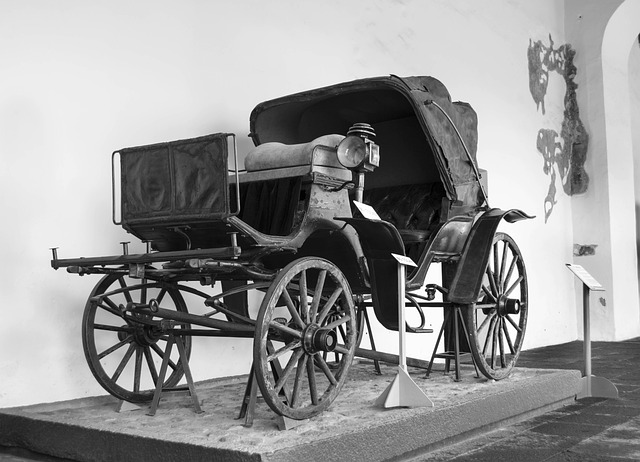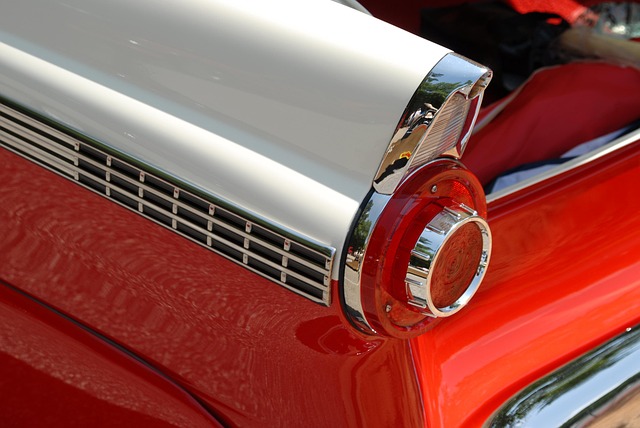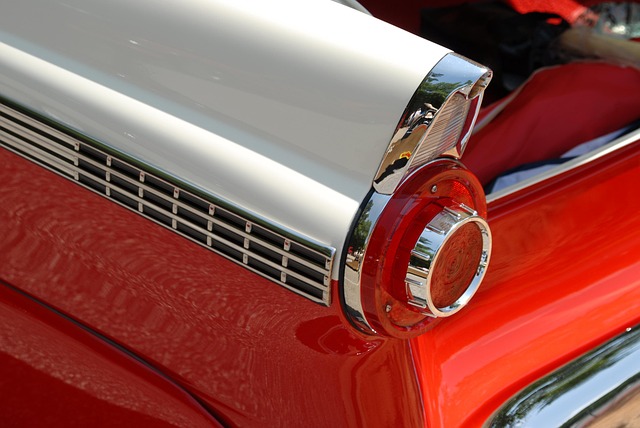When buying a used vehicle, understanding its history is essential for several reasons. A comprehensive history report can reveal past damage, structural issues, and maintenance problems. Ownership records check for stolen cars or outstanding loans. Odometer fraud is a growing concern, so using services like Carfax or checking the Vehicle Identification Number (VIN) helps prevent purchasing vehicles with altered mileage. These tools provide insights into accidents, ownership changes, and maintenance logs, ensuring buyers make informed decisions, protect against fraud, and invest in safe, reliable cars.
When hunting for a used car, every detail matters. One of the most crucial aspects often overlooked is the vehicle’s history. A simple mistake in assuming its past could lead to significant regrets later. This article delves into why understanding a car’s history is vital—from uncovering accidents and damage reports to tracing ownership records and combating odometer fraud. By the end, you’ll grasp the importance of using reputable services like Carfax or checking DMV records, ensuring you’re making an informed decision with a peace of mind before driving off with your new (to you) car.
- Why Vehicle History Matters: Avoiding Hidden Surprises
- Uncovering Accidental Truths: Accident and Damage Reports
- Tracing Ownership: Understanding the Car's Past Owners
- Odometer Fraud: A Growing Concern for Buyers
- Utilizing Vehicle History Services: Carfax and DMV Reports
- The Power of a VIN Check: Your Safety Net
- Making Informed Decisions: Safeguarding Your Purchase
Why Vehicle History Matters: Avoiding Hidden Surprises

Understanding a vehicle’s history is vital to ensuring you’re getting a reliable and safe car, especially when buying used. A simple oversight or lack of knowledge could lead to hidden surprises. For instance, a car may appear accident-free on surface level, but a detailed history report could reveal past damage that was repaired poorly, affecting the vehicle’s structural integrity. Similarly, knowing the ownership records can prevent you from purchasing a stolen vehicle or one with outstanding loans, which are risky and illegal purchases.
Vehicle history also plays a significant role in determining the car’s value and resale potential. Accurate knowledge of its past helps you negotiate a fair price, avoiding overpayment for a vehicle with hidden issues. Moreover, being aware of any maintenance records or recurring problems can give you an edge in assessing the overall condition and performance of the car, ensuring it aligns with your expectations.
Uncovering Accidental Truths: Accident and Damage Reports

Uncovering accidental truths starts with a comprehensive look at the car’s accident history. Modern vehicle history reports go beyond basic ownership details, delving into significant events like fender benders, severe crashes, or even flood damage. These incidents can impact not just the physical structure but also the safety features and overall performance of the vehicle. By accessing this information, potential buyers gain insight into the car’s past, helping them assess its current condition and predict future repair needs.
Accident reports also reveal important details about how the vehicle was handled post-incident. Did the owner disclose all accidents? Were the necessary repairs conducted by licensed professionals? A thorough investigation of these aspects ensures that you’re not purchasing a car with hidden issues or subpar repairs, which could compromise its safety and reliability in the long run.
Tracing Ownership: Understanding the Car's Past Owners

Tracing ownership is a crucial part of understanding a used car’s history. Every time a vehicle changes hands, it leaves behind a paper trail that includes details like sale dates, prices, and information about the previous owners. By accessing public records or using specialized services, you can piece together who owned the car in the past and for how long. This process offers valuable insights into potential issues or patterns of ownership that might indicate problems.
Knowing your car’s ownership history enables you to identify red flags such as repeated sales within a short period, which could suggest odometer rollback or other fraudulent activities. It also helps build a picture of the vehicle’s general care and maintenance based on its previous owners’ behaviors. Responsible ownership histories often point to well-maintained cars, while frequent changes in ownership might indicate issues that buyers should be wary of.
Odometer Fraud: A Growing Concern for Buyers

Odometer fraud is a deceptive practice where scammers manipulate a vehicle’s odometer to show lower mileage than it actually has. This growing concern leaves car buyers vulnerable, as they might purchase used cars with hidden mileage issues or even those that have been in significant accidents. Recent reports indicate an increase in such cases, emphasizing the need for caution when buying pre-owned vehicles.
Buyer protection services like Carfax play a vital role by offering detailed vehicle history reports. These reports not only reveal accident histories but also help uncover potential odometer fraud. Additionally, checking the Vehicle Identification Number (VIN) through official channels can provide insights into a car’s past, ensuring buyers make informed decisions and steer clear of fraudulent transactions.
Utilizing Vehicle History Services: Carfax and DMV Reports

When shopping for a pre-owned vehicle, leveraging reliable vehicle history services is akin to having a crystal ball—it provides invaluable insights into a car’s past. Two prominent players in this domain are Carfax and DMV reports. Carfax stands as a trusted name, offering comprehensive historical data, including accident records, ownership history, and maintenance logs. This service gives buyers peace of mind by revealing any potential red flags that might otherwise go unnoticed. On the other hand, DMV reports provide official documentation regarding a vehicle’s title, registration, and any reported accidents or titles changes—all crucial factors in assessing a car’s legitimacy and safety.
These services act as powerful tools, empowering consumers to make informed choices. With just a few clicks, you can uncover a wealth of information, ensuring the used car you’re considering is free from hidden surprises. In an era where odometer fraud poses a growing concern, relying on these vehicle history checks becomes not just advisable but essential, safeguarding both your investment and your safety on the road.
The Power of a VIN Check: Your Safety Net

A Vehicle Identification Number (VIN) check is your secret weapon when buying used cars, serving as a powerful safety net against potential pitfalls. This unique 17-character code carries a wealth of information, acting as a digital fingerprint for each vehicle. By simply entering the VIN into an online database or checking with official agencies like the DMV, you gain access to a detailed report outlining the car’s entire history.
Beyond confirming ownership and specifications, a VIN check reveals critical details such as accident records, major repairs, and whether the vehicle has ever been deemed a total loss due to damage. It also helps in identifying potential odometer fraud—a growing concern in the used car market. This transparency ensures you’re not caught off guard by hidden issues, allowing you to make informed decisions and purchase a car with confidence.
Making Informed Decisions: Safeguarding Your Purchase

Making informed decisions is key when purchasing a used car. Beyond conducting a visual inspection and test drive, delving into the vehicle’s history provides invaluable insights. A comprehensive report can reveal hidden issues like accidents or major repairs that may have been overlooked. By understanding the car’s past, you avoid making a costly mistake and ensure a reliable purchase.
Reliable services like Carfax or DMV reports offer detailed information on accident histories, ownership changes, and maintenance records. They also help safeguard against emerging threats like odometer fraud, where mileage is tampered with to conceal wear and tear. A simple VIN check, coupled with these reports, acts as a powerful tool to protect your investment and drive with peace of mind.
When purchasing a used car, a comprehensive vehicle history report is your best defense against unforeseen issues. By thoroughly examining accident records, ownership histories, and addressing concerns like odometer fraud, you can avoid making a costly mistake. Services like Carfax and official DMV reports provide invaluable insights, while a simple VIN check acts as your final checkpoint for peace of mind. Remember, being informed is the key to making a smart and safe car buying decision.



